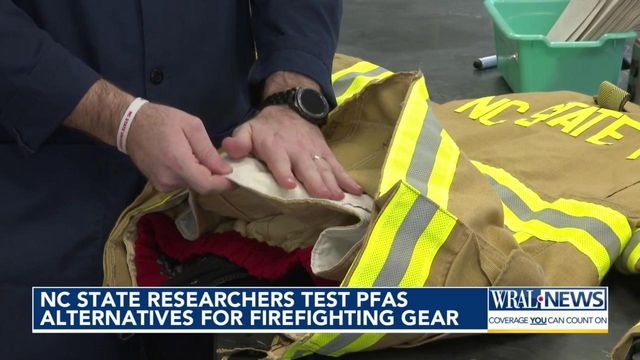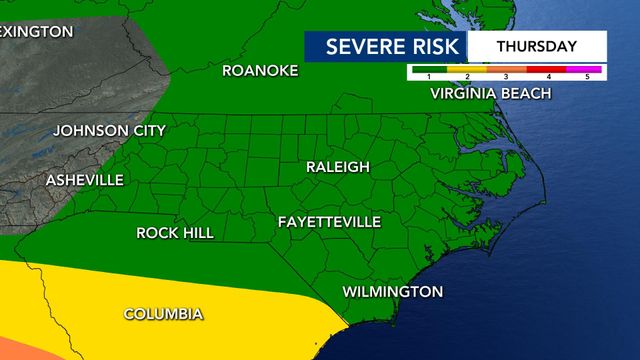NC State researchers study PFAS-free firefighter gear
A new study from North Carolina State University is examining alternatives to toxic chemicals in firefighting gear.
Researchers Bryan Ormond and his team, including PhD students Jingtian Lu and Nur Mazumder, have been examining the properties of fabrics treated with per- and polyfluoroalkyl substances (PFAS) and a PFAS-free alternative.
"If we want to decrease the exposure from PFAS then we have to switch to something that doesn't have this chemistry in it, but it's going to have different properties," Ormond said. "PPE is a science of tradeoffs."
PFAS chemicals have been linked to adverse health impacts, including higher cancer risk.
"It's not just the firefighters who are concerned, it's firefighter families who are concerned," said Raleigh Battalion Chief Keith Wilder.
A 2020 study found concentrations of PFAS chemicals on turnout gear to be as high as 14,000 times higher than drinking water limits.
"The exposure is so great on the gear, we're obviously going to have to come up with something different and it's going to react and act differently than the PFAS gear," Wilder said.
In NC State's tests, the PFAS and non-PFAS fabrics preformed similarly in strength and durability after stress from heat, UV and laundering.
Both fabrics also repelled water effectively, but the PFAS-treated fabric more efficiently repelled oils including gasoline, diesel and hydraulic fluid.
Wilder says there are safety protocols for direct fuel exposure, which he says is uncommon.
"Whether it's PFAS-free or gear that has PFAS in it, that gear still needs to be decontaminated before it's used again and a structure fire," WIlder said.
In researchers' vertical flame tests, the fuel that was absorbed into PFAS-alternative fabrics burned off, but the fabric itself remained flame-resistant.
"It's just managing of expectations and what you expect the protective clothing or other product to do, because having these chemicals manufactured and used and end up in the environment and in the bodies of everyone, it's just not an acceptable alternative," Ormond said.
Wilder said the Raleigh Fire Department is exploring PFAS-free alternatives, as well as training and policy changes to reduce exposure.










